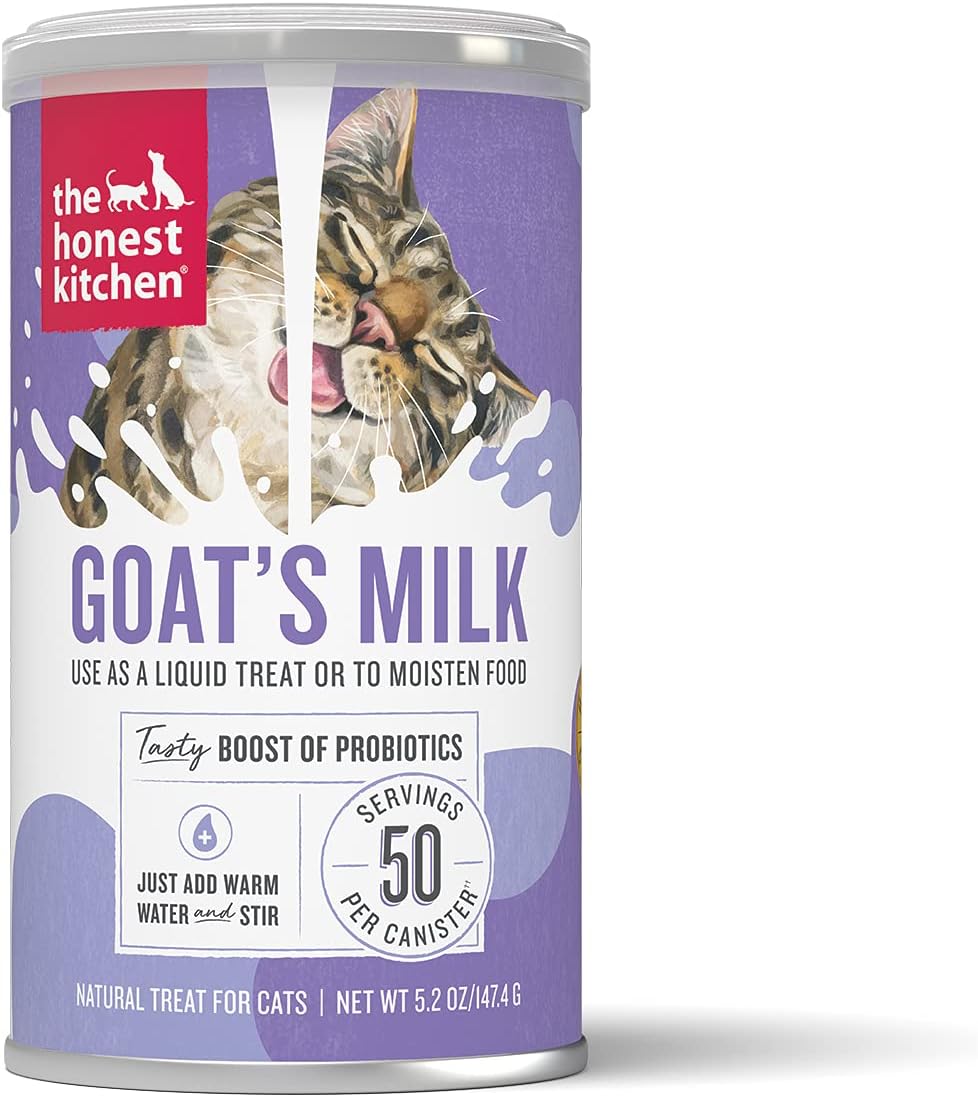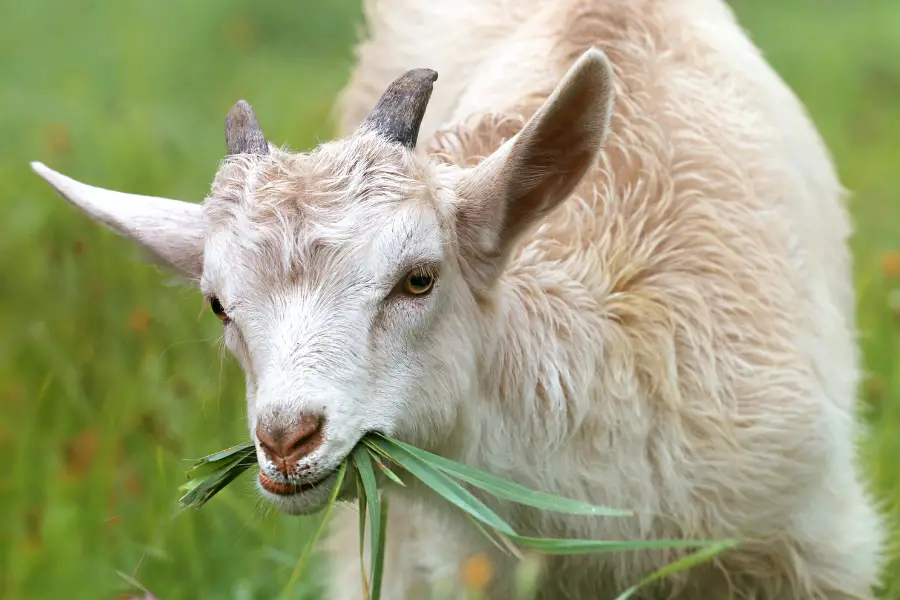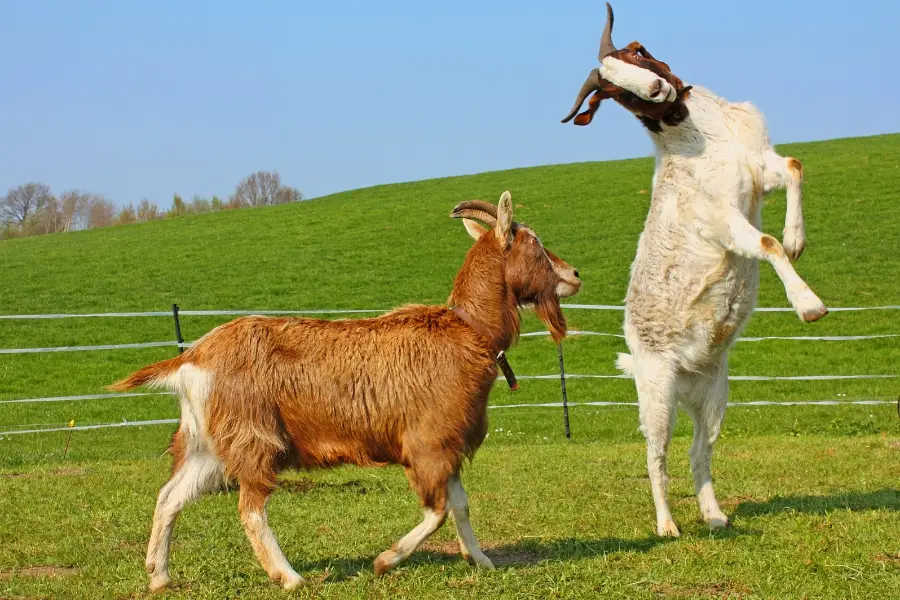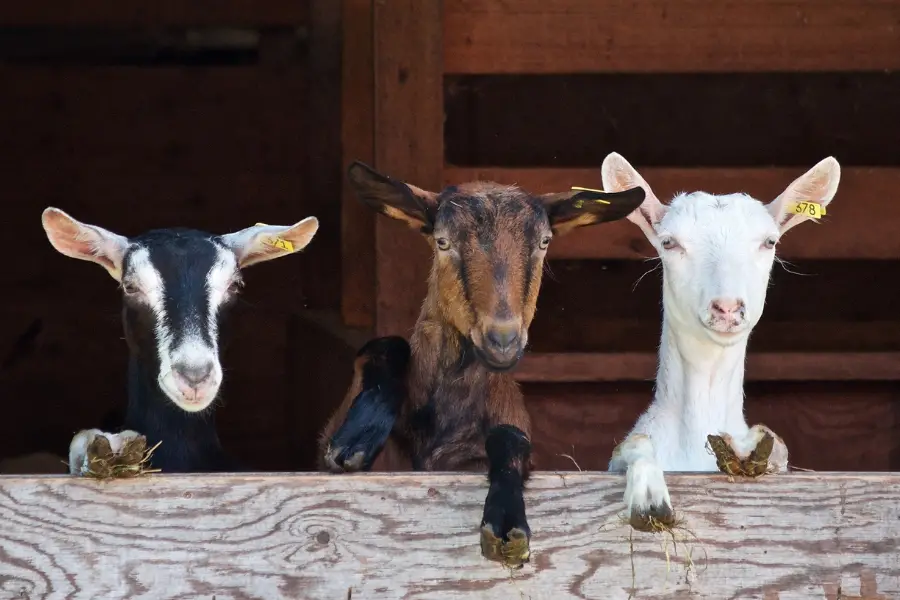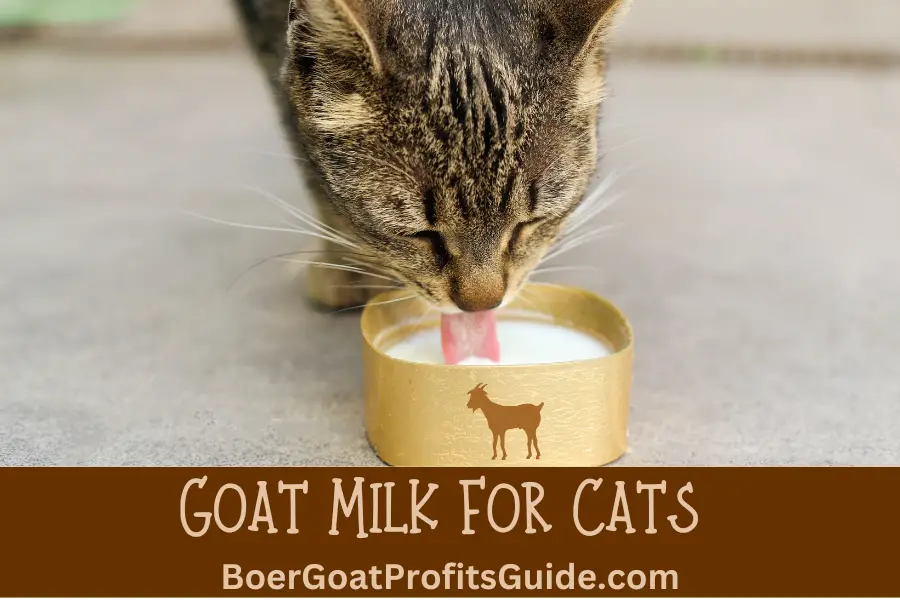
Goat milk has become increasingly popular as an alternative milk for both humans and pets. For cats, goat milk can provide a myriad of health benefits, making it an appealing supplement to a feline’s diet. This article aims to provide an overview of goat milk for cats, its nutritional profile, and how it can be beneficial for your cat’s health.
Table of contents
Is Goat Milk Right for Your Cat?
As more pet owners strive to provide the best possible nutrition for their feline friends, goat milk has emerged as a rich source of vitamins, minerals, and essential fatty acids. Thanks to its digestibility and the presence of natural probiotics, cats can absorb these nutrients more easily, potentially supporting their gut health, immune function, and overall well-being.
However, it’s essential to understand how to serve goat milk to your cat safely and identify any potential risks or considerations before making it a regular part of their diet. Alternatives to goat milk are also available for cats with specific dietary needs or preferences.
Key Takeaways
- Goat milk for cats – offers numerous health benefits due to its rich nutrient profile
- Cats may absorb nutrients more easily from goat milk due to its digestible nature
- Serving goat milk to cats requires proper consideration of potential risks and alternatives
Goat Milk Nutritional Profile
Vitamins and Minerals
Goat milk is a rich source of essential vitamins and minerals that cats require for their overall health. Some key nutrients present in goat milk include:
- Calcium: Crucial for strong bones and teeth, calcium also plays a role in nerve function and muscle control.
- Potassium: Regulates fluid balance in the body and supports nerve function and muscle activity.
- Phosphorus: Supports healthy bones, teeth, and cellular function.
- Magnesium: Important for muscle and nerve function, bone health, and energy production.
- Vitamin A: Maintains the health of skin, coat, eyes, and immune system.
Protein and Fat Content
Goat milk has many benefits. It is a good source of protein, which is essential for growth, development, and maintaining muscle mass. In comparison to cow’s milk, it contains slightly less protein but a more balanced profile of essential amino acids. The fat content in goat milk is mostly comprised of short- and medium-chain fatty acids, making it easier to digest. Some key facts about protein and fat content in goat milk:
- Protein content: Approximately 3.4% (similar to cow’s milk)
- Fat content: Approximately 4.1% (lower than cow’s milk but with healthier fatty acid composition)
Lactose Levels
Lactose, a natural sugar found in milk, can be challenging for some cats to digest. However, goat milk has a lower lactose content compared to cow’s milk, which might make it a more suitable option for lactose-intolerant cats. The lactose content in goat milk is around 4.1%, compared to 4.7% in cow’s milk. While this difference may not be significant, the presence of enzymes in goat milk aids in easier digestion.
Benefits and Usage for Cats
Kittens and Adult Cats
Goat milk can be beneficial for both kittens and adult cats. For kittens, goat milk serves as a nutritious supplement for mother’s milk when it is not available or insufficient. It is rich in vitamins, minerals, and essential fatty acids needed for their growth and development. Adult cats can also benefit from the occasional use of goat milk as a treat or a supplement to their regular diet.
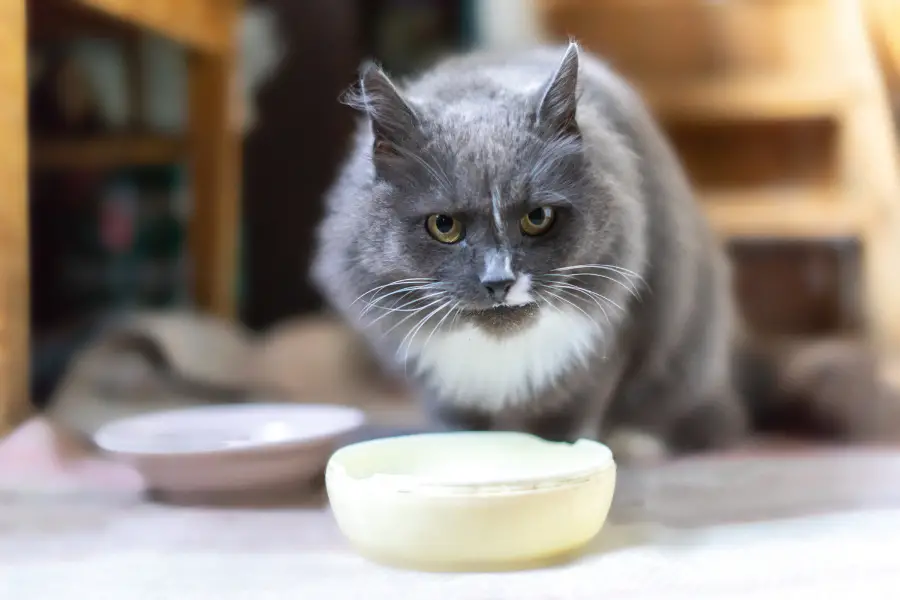
Lactose Intolerance and Digestion
Cats, like some humans, can be lactose intolerant, causing digestive issues when consuming cow milk. Goat milk contains less lactose than cow milk, making it a suitable alternative for lactose-intolerant cats. Additionally, the smaller fat molecules and looser curd structure in goat milk make it easier for cats to digest compared to cow milk.
Probiotics and Digestive Health
Goat milk contains natural probiotics and prebiotics, such as oligosaccharides, which promote the growth of good bacteria in a cat’s digestive system. This can help improve overall digestive health and reduce the occurrence of gastrointestinal issues, such as diarrhea or constipation.
Table – Probiotics and Prebiotics in Goat Milk
| Beneficial Components | Function |
|---|---|
| Probiotics | boost good bacteria in the digestive system |
| Prebiotics (oligosaccharides) | support probiotics and promote digestive health |
Hydration and Electrolyte Replacement
When cats are dehydrated due to vomiting, diarrhea, or hot weather, goat milk can be a helpful source of hydration and electrolyte replacement. It contains essential electrolytes like potassium, sodium, and phosphorus that restore the body’s balance and support proper functioning.
In summary, goat milk can be a beneficial addition to a cat’s diet, catering to kittens and adult cats, aiding lactose-intolerant cats, improving digestive health with probiotics and prebiotics, and providing hydration and electrolyte replacement when needed.
Serving Goat Milk to Cats
Fresh
When serving fresh goat milk to your cat, it’s essential to consider a few factors. Firstly, always provide clean water alongside the milk, as hydration remains a critical aspect for pets’ overall health. Keep the serving size of goat milk small, preferably starting with just a teaspoon. Gradually increase the amount if your cat seems to enjoy the taste and shows no signs of adverse reactions.
Goat milk should be consumed in moderation as it can potentially lead to weight gain in cats. Monitor your pet’s weight regularly to ensure they maintain a healthy balance.
Yogurt and Cheese Forms
In addition to fresh goat milk, you can also serve it in yogurt or cheese forms. These dairy products offer an alternative way to consume goat milk, but the same principles apply as when serving it fresh. Offer these products in small amounts and keep an eye on your pet’s weight. You may also observe improvements in your cat’s coat, as goat milk products contain beneficial nutrients that promote healthy skin and fur.
When selecting yogurt or cheese, opt for goat dairy products without added sugars or artificial flavors, as these additives may not be suitable for your cat.
Incorporating into Cat Food
Mixing goat milk into your cat’s existing food is an option for incorporating it into their diet. Start by adding a small amount of goat milk to their regular cat food and adjust the serving based on your pet’s taste preference and reaction. Ensure that the total amount of dairy products – including goat milk, yogurt, and cheese – remain within a reasonable limit to avoid potential risks of weight gain or other health complications.
By incorporating goat milk into your cat’s diet through fresh milk, yogurt, cheese, or mixing with their existing food, you provide a valuable source of nutrients that can enhance their overall health and appearance. Remember always to serve goat milk products in moderation and monitor any changes to your pet’s well-being.
Goat Milk for Cats – Commercial Products Just for Cats
There are quite a few goat milk products that are targeted specifically for cats. Always check with you veterinarian first. Two highly rated products are The Honest Kitchen Goat’s Milk with Probiotics for Cats, which comes as a powder, and a Raw Paws Pet Frozen Raw Goat Milk for Dogs and Cats, which is a frozen product.
Risks and Considerations
Allergies and Adverse Reactions
Some cats may suffer from lactose intolerance or allergic reactions when consuming goat milk. This can lead to diarrhea, intestinal inflammation, and discomfort. Since goat milk is a novel protein source, it may be less allergenic for certain breeds. However, it is crucial to monitor your cat for any signs of allergies or adverse reactions after introducing goat milk into their diet.
Pasteurized vs Unpasteurized Milk
The decision between pasteurized and unpasteurized goat milk is essential to consider. Pasteurized milk undergoes a heat process that eliminates potentially harmful bacteria; however, it also reduces some nutritional benefits. Unpasteurized milk retains more nutrients, but it can carry risks related to bacterial infection. Weighing the benefits and drawbacks is necessary for a more informed decision.
Table – Pros and Cons of Pasteurized vs Unpasteurized (Raw) Goat Milk
| Source | Pros | Cons |
|---|---|---|
| Pasteurized | Lower risk of bacteria leading to infections | Reduced nutritional value |
| Unpasteurized | Enhanced nutritional content, supports immune system health | Potential presence of harmful bacteria |
Consulting with a Veterinarian
It is always advisable to consult a veterinarian before introducing goat milk or any new food into your cat’s diet. They can provide guidance on the type and frequency of consumption based on your cat’s breed, health, and specific needs. Additionally, discussing the risks and potential adverse reactions can ensure a safe and beneficial experience for your cat.
Remember that goat milk should not replace a well-balanced diet, but it can be a supplementary source of nutrition. Careful planning and consideration of your cat’s needs will help promote their overall health and well-being.
Alternative Milk Options for Cats
Oat Milk
Oat milk is another alternative that people sometimes consider for their cats. Made from oats and water, oat milk contains beneficial nutrients such as magnesium and iron, which can aid in your cat’s overall health. Of all the grains, oats are high in protein. Cats are obligate carnivores, however, they can extract some protein from oats. However, it should be noted that some oat milk brands may still contain traces of lactose, so make sure to read the label carefully to ensure it is truly lactose-free. Limit the consumption of oat milk by your cat. Make it an infrequent treat.
Lactose-Free Milk
Lactose-free milk is a great choice for cats who cannot digest lactose due to the absence of lactase enzymes in their system. This type of milk has had the lactose removed and replaced with small amounts of lactase, making it safe for cats to consume. Aside from the lactase addition, the nutritional content of lactose-free milk is often similar to that of regular pasteurized milk.
Table – Nutrition in Lactose Free Milk compared to standard milk
| Nutrient | Content |
|---|---|
| Protein | Similar |
| Magnesium | Similar |
| Iron | Similar |
| Antioxidants | Similar |
| Trace Elements | Similar |
Kefir
Kefir is another option to provide your cat with a dairy alternative. It is made from fermenting milk, often goat’s milk, with beneficial bacteria, which results in a yogurt-like consistency. The fermentation process helps to break down lactose and remove most of the casein, making it easier for cats to digest. Kefir is also high in antioxidants, trace elements, and contains lower levels of triglycerides compared to regular milk. It provides your cat with essential nutrients, while still being easy on their digestive system.
- Beneficial Bacteria: Supports digestive health
- Antioxidants: Helps protect cells from damage
- Trace Elements: Essential for various bodily functions
- Lower Triglycerides: Reduces the risk of fatty liver disease
There is some debate whether kefir is beneficial for cats or not. Check with your vet about your particular situation.
Water
Ensure that you cat has an adequate supply of fresh clean water. That will provide him or her with all the liquid they need.
Video-Goat Milk for Cats
Can cats drink goats milk? See for yourself in this awesome video!
Frequently Asked Questions
Yes, cats can have pasteurized goat milk. Pasteurization helps eliminate harmful bacteria and pathogens that may be present in raw milk. It is always recommended to provide pasteurized milk to your pets for their safety.
Goat milk is generally safe for felines in moderation. However, some cats may have lactose intolerance, which can cause digestive issues. It is essential to monitor your cat for any adverse reactions or discomfort and adjust their diet accordingly.
Cats can consume goat milk as an occasional treat or supplement to their regular diet. It should not be their primary source of nutrition. Small portions, such as a tablespoon or two, can be provided once or twice a week.
Goat milk should not replace kitten formula, as it does not provide all the necessary nutrients for a growing kitten. Kitten formula is specifically designed to meet their dietary needs, so it is essential to use a proper formula for kittens.
There are some potential benefits of goat milk for cats. It is rich in nutrients like calcium, potassium, and magnesium. Goat milk also contains vitamins A, C, and B-complex. Additionally, it has lower lactose levels, which may be easier for some cats to digest compared to cow’s milk.
Goat milk may aid in feline digestion due to its lower lactose content and smaller fat globules, making it easier for some cats to digest. However, it is essential to keep in mind that individual cats may have varying tolerances and preferences.



